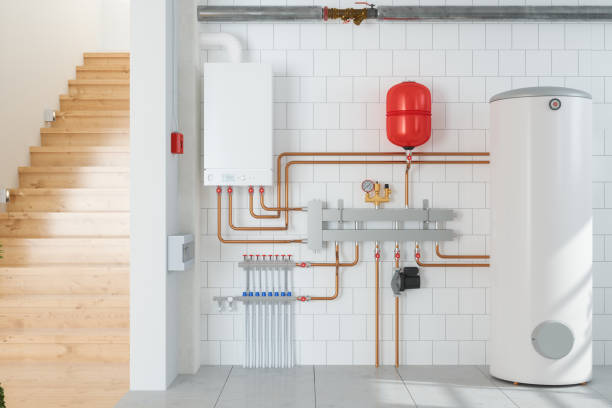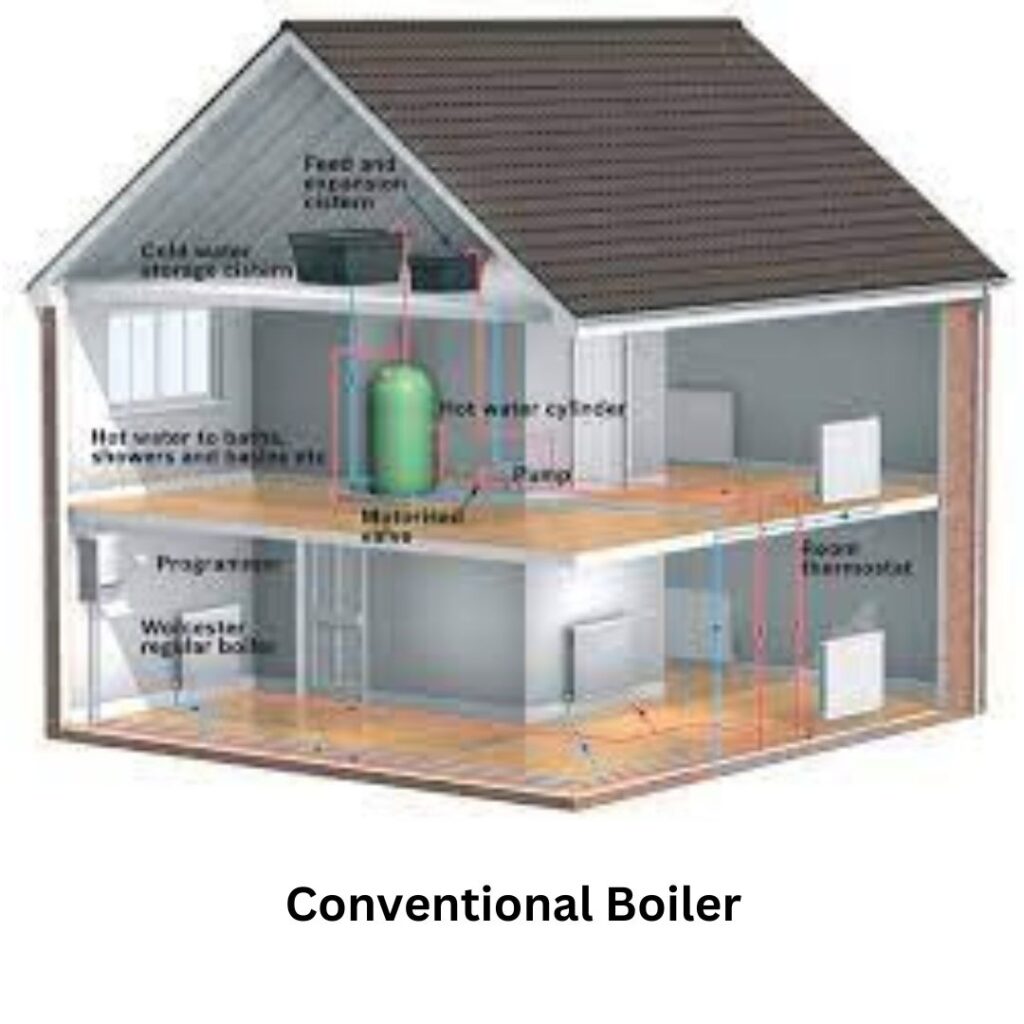When it comes to choosing a boiler for your home, the options can be overwhelming. Two of the most popular types of boilers are combi boilers and conventional boilers. Combi boilers are known for their energy efficiency and space-saving design, while conventional boilers are better suited for larger homes with high hot water demand. In this article, we’ll compare combi boilers and conventional boilers, outlining the pros and cons of each type and helping you to decide which one is right for your home.
Combi Boilers vs Conventional Boilers
When considering your options for a new boiler, it’s important to take into account the size and hot water needs of your home. For larger homes with multiple bathrooms or high hot water demand, a system boiler with a large hot water cylinder is nearly always a better option than a combi boiler. On the other hand, a combi boiler is the best option for homes with 1-2 bathrooms as they are highly efficient and take up less space.
But if you live in a larger home and your hot water demand is high, a conventional boiler with a hot water cylinder may be a better choice as it can store hot water, allowing multiple showers or baths to be taken at the same time.

What is a Combi Boiler and How Does it Work?
A combi boiler, short for combination boiler, is a type of boiler that provides both heating and hot water without the need for a separate hot water cylinder. It heats water on demand, as it flows through the boiler, rather than storing it in a cylinder. This makes combi boilers a popular choice for homeowners looking to save space and money on their heating and hot water systems.
Pros and Cons of Combi Boilers
One of the biggest advantages of combi boilers is their efficiency. Because they heat water on demand, they don’t waste energy by constantly heating and maintaining a supply of hot water in a cylinder. Additionally, they take up less space in your home and are generally easy to install and maintain.
However, combi boilers do have some drawbacks. They may not be the best choice for larger homes with multiple bathrooms and high hot water demand. They also may not be able to keep up with high demand for hot water during peak usage times.
Conventional Boilers: An Alternative to Combi Boilers
Conventional boilers, also known as regular or heat-only boilers, are a type of boiler that provides heating but not hot water on demand like combi boilers. They use a hot water cylinder to store hot water and a cold water storage tank to provide water to the boiler.
They are typically more powerful than combi boilers and are a good choice for larger homes with high hot water demand. They can heat a large volume of water at once which means they can supply multiple bathrooms or showers at the same time. Additionally, conventional boilers are more suited for homes with multiple bathrooms or large families. They also tend to have a longer lifespan.
However, conventional boilers do have some drawbacks. They take up more space in your home and are less energy efficient than combi boilers, as they need to constantly heat and maintain a supply of hot water in the cylinder.

Making the Choice: Combi Boilers vs Conventional Boilers
When deciding between a combi boiler and a conventional boiler, it’s important to consider the size and hot water needs of your home. Combi boilers are a great choice for smaller homes or homes with low hot water demand, while conventional boilers are better suited for larger homes with high hot water demand.
You should also consider the space available in your home and your budget. Combi boilers are generally less expensive to install and maintain, while conventional boilers may have a higher initial cost but may be more cost-effective in the long run. Combi boilers are also more energy efficient as they do not waste energy by constantly heating and maintaining a supply of hot water in a cylinder.
It’s also important to consider the maintenance cost and lifespan of the boilers. Combi boilers tend to be harder to maintain and have a shorter lifespan compared to conventional boilers. On the other hand, conventional boilers have a longer lifespan and require less maintenance.
Ultimately, the choice between a combi boiler and a conventional boiler will depend on your specific needs and preferences. It’s recommended to consult with a heating engineer to understand which type of boiler is best suited for your home based on your hot water and heating requirements, space available and budget.
How Do I Know Which Boiler is Right for Me?
To determine which boiler is right for you, consider the following factors:
- The size and hot water needs of your home: Combi boilers are a great choice for smaller homes or homes with low hot water demand, while conventional boilers are better suited for larger homes with high hot water demand.
- The space available in your home: Combi boilers take up less space than conventional boilers.
- Your budget: Combi boilers are generally more expensive to install and maintain, while conventional boilers may have a high initial cost but may be more cost-effective in the long run.
- The maintenance cost and lifespan of the boilers: Combi boilers tend to be easier to maintain and have a shorter lifespan compared to conventional boilers. On the other hand, conventional boilers have a longer lifespan but may require more maintenance.
It’s also recommended to consult with a heating engineer or a plumber to understand which type of boiler is best suited for your home based on your hot water and heating requirements, space available and budget.
When can you replace a combi boiler with a conventional boiler?
There are a few reasons why you might want to replace a combi boiler with a conventional boiler:
- High hot water demand: If you live in a larger home with multiple bathrooms or a large family, a combi boiler may not be able to keep up with the high hot water demand. A conventional boiler, with a hot water cylinder, can store hot water, allowing multiple showers or baths to be taken at the same time.
- Need for a backup heat source: If you want to have a backup heat source for the periods of high demand, a conventional boiler with a hot water cylinder would work best.
- Cost-effective: If you live in a larger home and your hot water demand is high, it may be more cost-effective in the long run to replace your
- boiler with a conventional boiler. This is because conventional boilers have a longer lifespan due to less complex parts and so require less replacement parts costs, which can offset the higher initial cost.
Read related articles:
